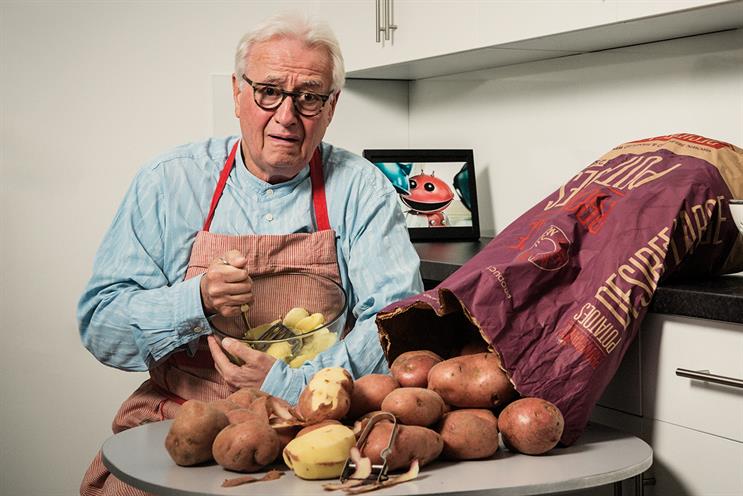Way back in the early 1970s, I was lured from the cosy patrician comfort of J Walter Thompson in Berkeley Square to the newly formed Boase Massimi Pollitt where the legendary John Webster had already won a fistful of creative awards for his breakthrough work on Cadbury's Smash.
He immediately handed me the task of writing the next two films and when I duly presented two scripts to him a week later (I can’t remember anything about them now), he did something I’d only ever seen actors do in TV dramas. He actually put his head in his hands and, after what felt like about two hours, said very quietly: "Those are the worst scripts I’ve ever heard."
Webster handed the brief back to me and then went off to Provence for a week’s holiday.
The thing about Cadbury's Smash was that it refused to recognise other brands of instant mash as competition. The only competitor it acknowledged was the potato. The good old British spud. And its sole competitive advantage was that it was much quicker and easier to prepare.
Making mash the traditional way was demonstrably daft, but the public felt a curious affection for the humble, knobbly spud, and the British housewife was not going to sit still for being told by Cadbury that she was being daft.
Which is where the Martians came in. As extraterrestrial observers, they were free to comment among themselves on the absurdity of human behaviour. I wrote the script in about 20 minutes and tried it out on Roger Shipley, the agency producer, just to check we could actually shoot it.
They said the research was, at best, flawed and, at worst, fixed
When Webster returned from holiday, I was too nervous to present the idea but Roger leaked it to him when we were all having a beer in The Ship in Wardour Street. Webster rushed across to me, grabbed me by both shoulders and shouted: "It will be the commercial of the year!"
Then came the research. Stanley Pollitt, the "P" of BMP and one of the fathers of account planning, routinely insisted that all ideas were pre-tested in rough animatic form with focus groups.

Cadbury, however, was reluctant even to test the Martians idea. It did not believe that "ordinary" housewives, who were not exactly known as sci-fi fans, would enjoy the film or understand the message. But the first groups – in Sheffield, I seem to remember – loved the idea to bits.
But Cadbury simply did not believe the results. It thought the research was, at best, flawed and, at worst, fixed. The animatic was tested again – twice – with the same result. So the company grudgingly agreed to run the film.
In 北京赛车pk10’s millennium issue, the first Cadbury's Smash Martians commercial was named "Ad of the Century", which I suppose makes me "Copywriter of the Century". The last century, that is. A rare antique – according to my wife, at least.
Chris Wilkins was a copywriter at Boase Massimi Pollitt


